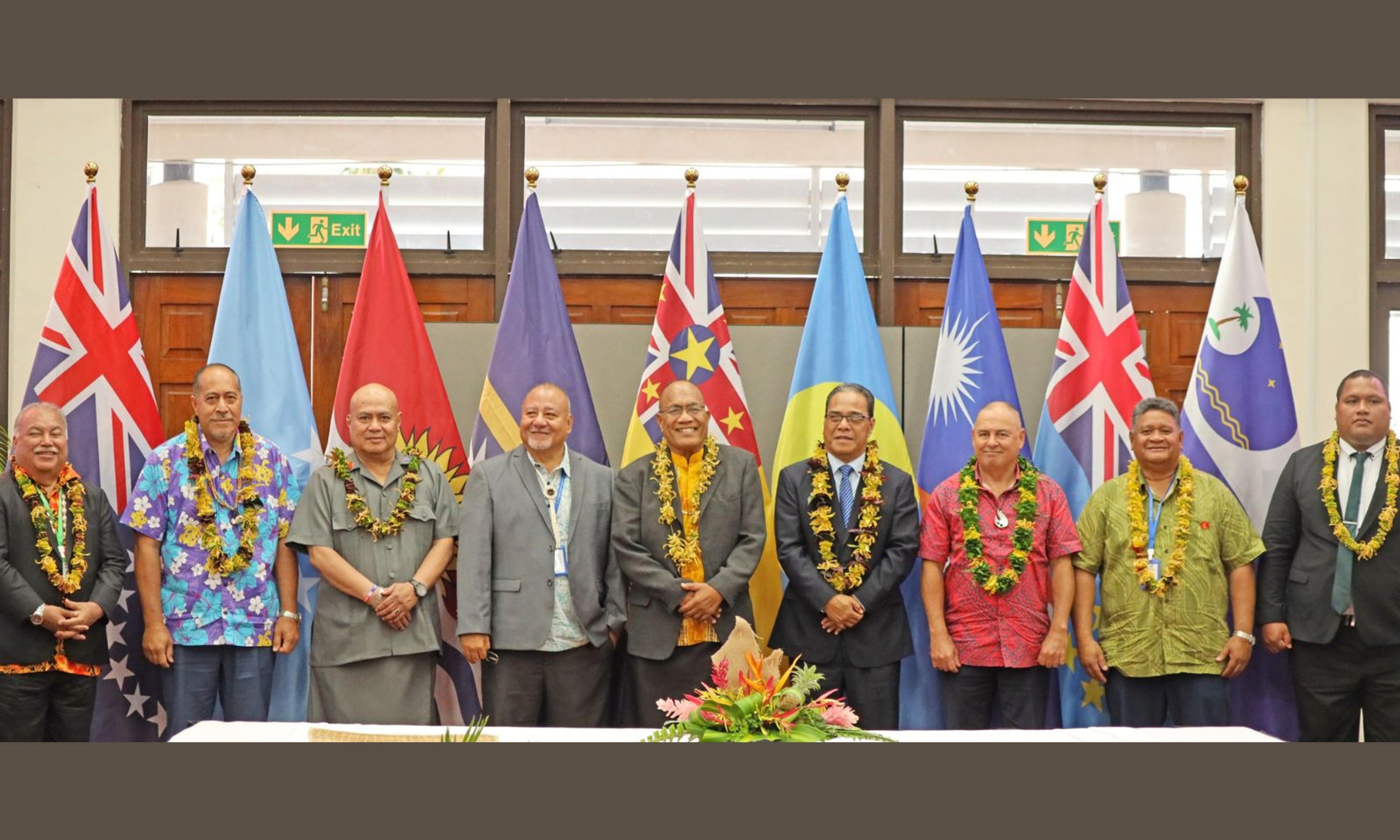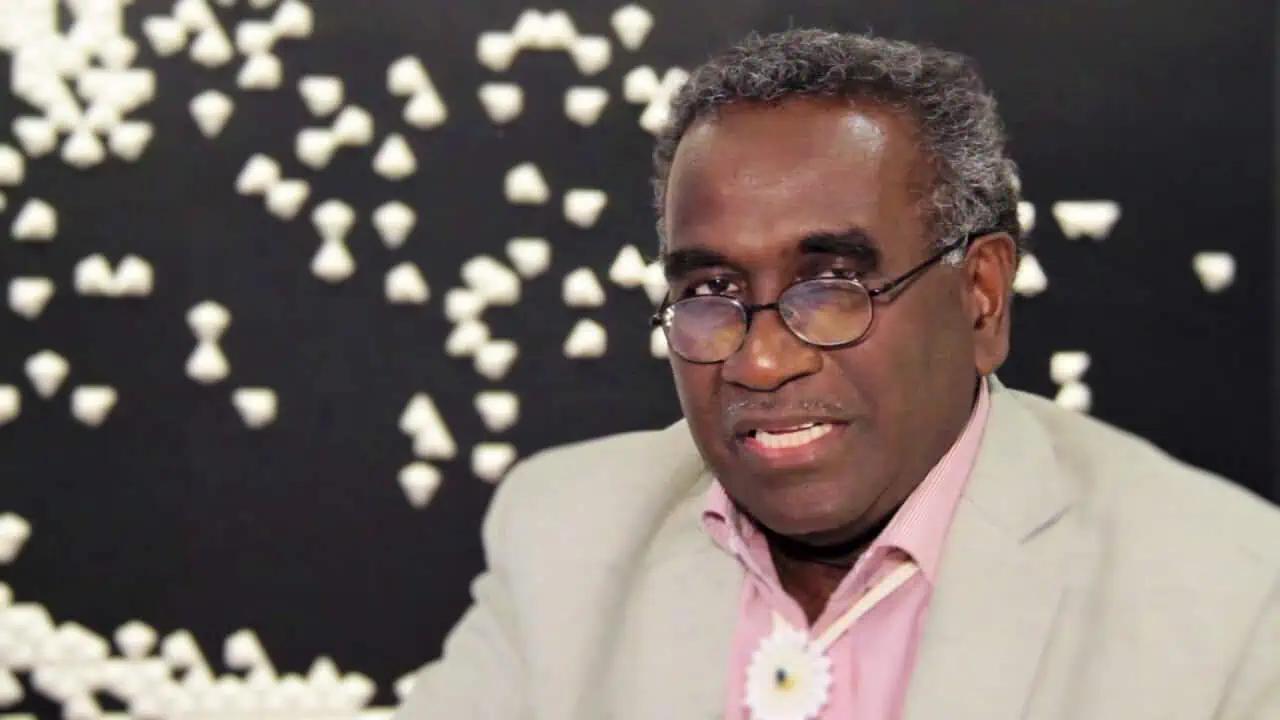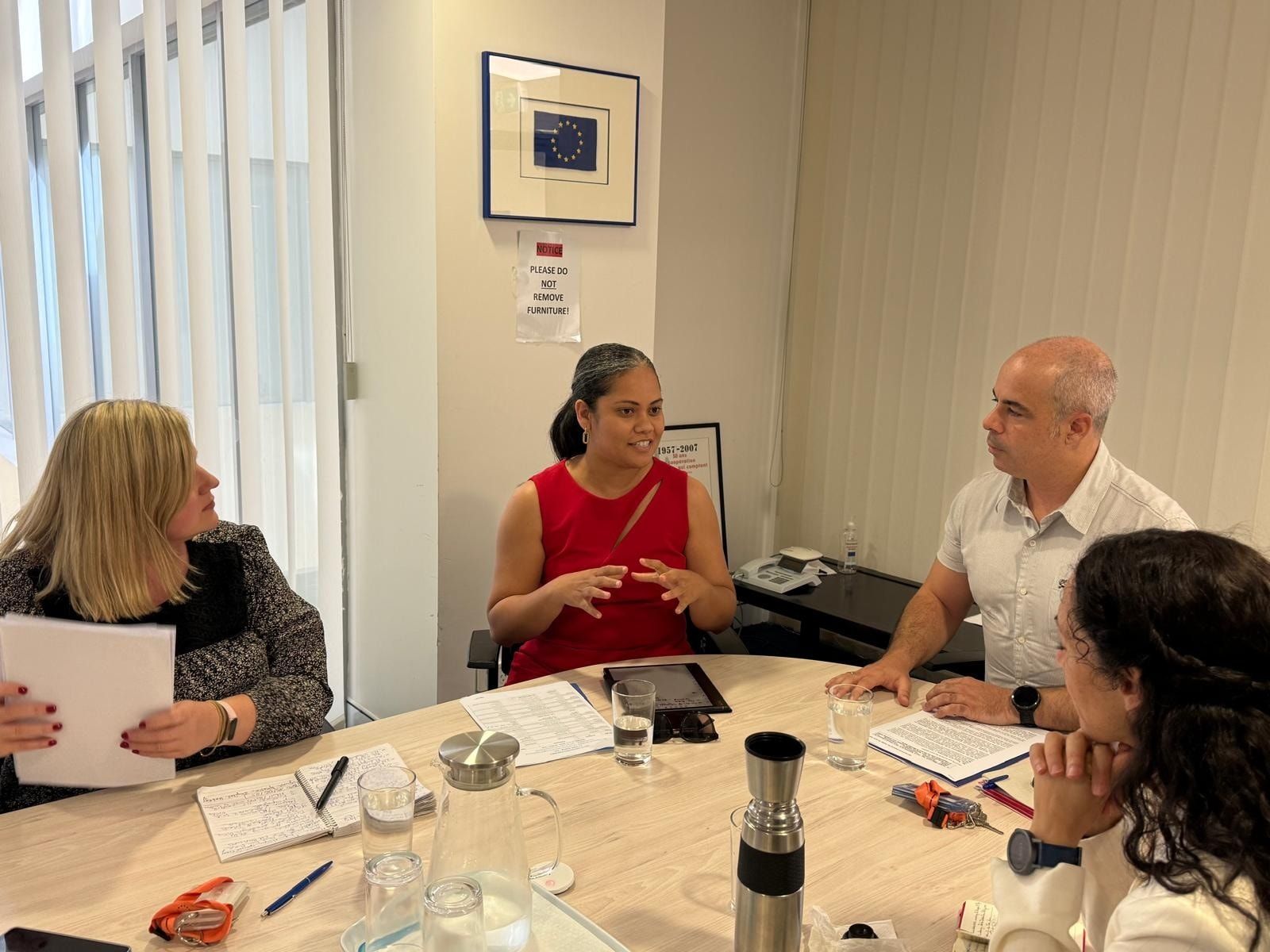

Pacific leaders meet in Honiara during the 2025 Pacific Islands Forum. A new Lowy Institute report urges deeper regional security cooperation through a proposed “Pacific Eyes” pact.
Photo/Facebook/Pacific Islands Forum
Pacific Eyes' alliance proposal set to lock in intelligence-sharing as China's reach grows
The new pact will link New Zealand, Australia, Papua New Guinea, and Fiji to tackle cyber threats, crime, and foreign interference. But Pacific experts warn it must protect regional sovereignty and data control.


Moana Pasifika end Lautoka curse to win 'Battle of the Pacific'


A.R.T sets new Pacific music pace with ‘First Thursday’ releases


Moana Pasifika end Lautoka curse to win 'Battle of the Pacific'


A.R.T sets new Pacific music pace with ‘First Thursday’ releases
A new report from Australia’s Lowy Institute is calling for a “Pacific Eyes” intelligence-sharing agreement to tackle rising crime, cyber threats, and geopolitical tensions across the region.
But experts warn that such an alliance must be built on Pacific terms, not just Canberra’s.
The proposal, which is likened to a Pacific version of the Five Eyes alliance, would see New Zealand, Papua New Guinea, Fiji, and Australia form a dedicated network to share intelligence on transnational and climate-related security threats.
The Lowy policy brief, published on Tuesday, argues that the region’s security landscape is increasingly shaped by overlapping challenges, from illegal fishing and organised crime to foreign interference and climate shocks, many of which are being “exploited by external powers”.
“Without structured intelligence-sharing, Pacific governments risk being blindsided by the next geopolitical surprise,” the report warns, citing China’s growing presence in the region.
While the report highlights the strategic logic of closer ties, others are cautioning that information sovereignty must remain front and centre.
Dr Transform Aqorau, a Solomon Islands legal scholar and Pacific governance expert, told The Guardian Pacific the idea had merit but must not become “a one-way flow of intelligence back to Canberra”.
“Security cooperation is necessary, yes, but data is power,” Aqorau says. “Pacific countries must own their data, decide how it’s used, and ensure this isn’t just a new form of dependency dressed as partnership.”
Dr Jope Tarai, a Fijian academic based in Canberra, says any intelligence pact must “embed Pacific digital sovereignty”. This, Tarai adds, ensures Pacific nations develop their own secure systems rather than rely on external platforms vulnerable to exploitation.

Dr Transform Aqorau says the Pacific is “not a chessboard for global competition”, but a collection of sovereign states with their own aspirations whose voices needed to be heard. Photo/Supplied
Climate and cyber threats: new front lines
The Lowy report emphasises that the Pacific’s greatest vulnerabilities are not just military but environmental and digital.
Rising cyberattacks, such as the ransomware strike that crippled Vanuatu’s government in 2022, and more frequent climate disasters, are overwhelming national capacities.
Iliesa Tora, a Suva-based cybersecurity consultant, says the focus on cyber and climate intelligence was long overdue.
“Our governments are flying blind on digital threats. There’s no shared Pacific warning system,” Tora warns. “If this helps us track cyber incidents faster, it could save lives and money.”

Fiji’s Director-General for Digital Government Transformation, Cybersecurity, and Communications, Tupou'tuah Baravilala, second from left, joined the EU Member States Ambassadors in June to discuss Fiji’s National Digital Strategy 2025-2030 as well as to explore opportunities for enhanced cooperation with Fiji on cybersecurity and digital issues. Photo/Facebook/European Union in the Pacific
Balancing trust and transparency
But intelligence cooperation comes with trust issues, the experts warn.
Pacific nations have long been wary of being drawn into great power rivalries, and past controversies, including Australia’s spying on Timor-Leste during oil negotiations, still weigh heavily.
Professor Tess Newton Cain, head of the Pacific Hub at Griffith Asia Institute in Brisbane, says any “Pacific Eyes” pact would succeed only if smaller members felt genuine ownership.
“This can’t look like a top-down Australian initiative. It must be co-designed, transparent, and rooted in Pacific priorities,” she says. “Otherwise, it risks the same suspicion that greeted AUKUS.”
Step towards a Pacific-led security community?
Supporters say the framework could evolve into a genuine Pacific-led network, beginning with practical cooperation on issues like illegal fishing, drug smuggling, and disaster response.
Papua New Guinea and Fiji, both modernising their security systems, are seen as natural anchors for such an arrangement.
Just this week, the Fijian government signed a cybersecurity pact with Israel, just weeks after opening the country's embassy in Jerusalem.
Still, regional leaders will need convincing that the “Pacific Eyes” vision strengthens, rather than erodes, sovereignty.
As Aqorau put it to the Guardian: “We need Pacific Eyes, but they should be our own eyes, not borrowed ones.”